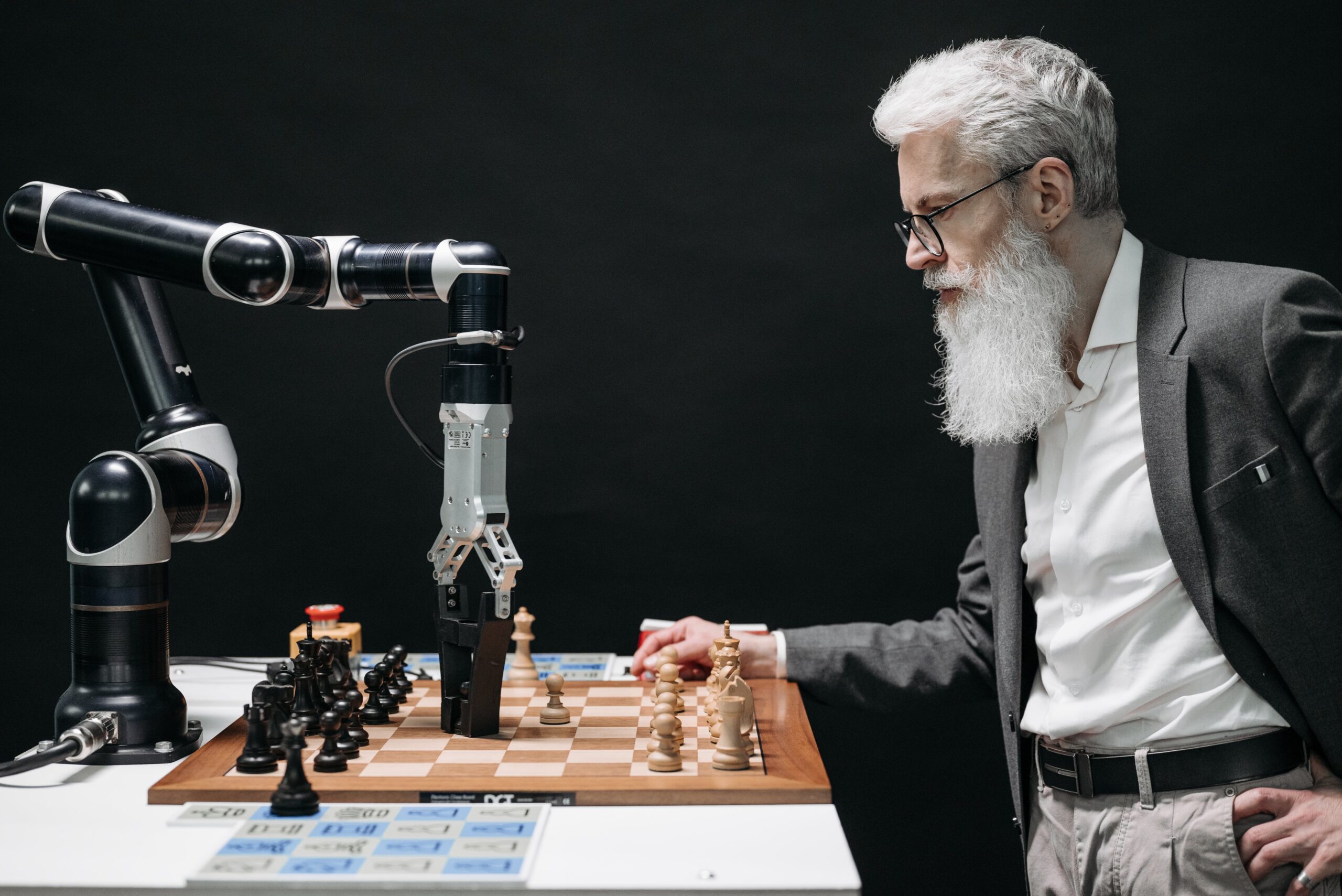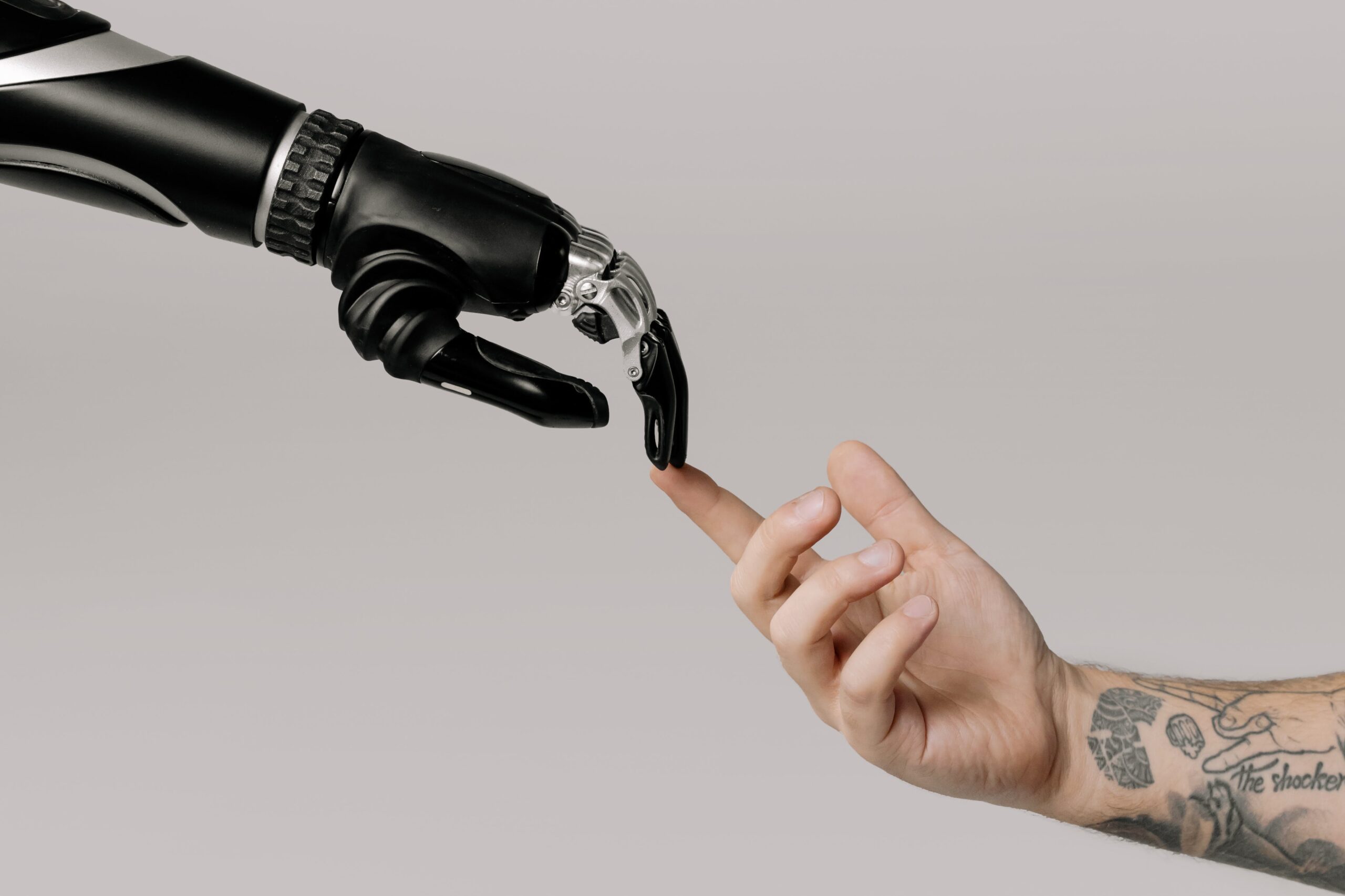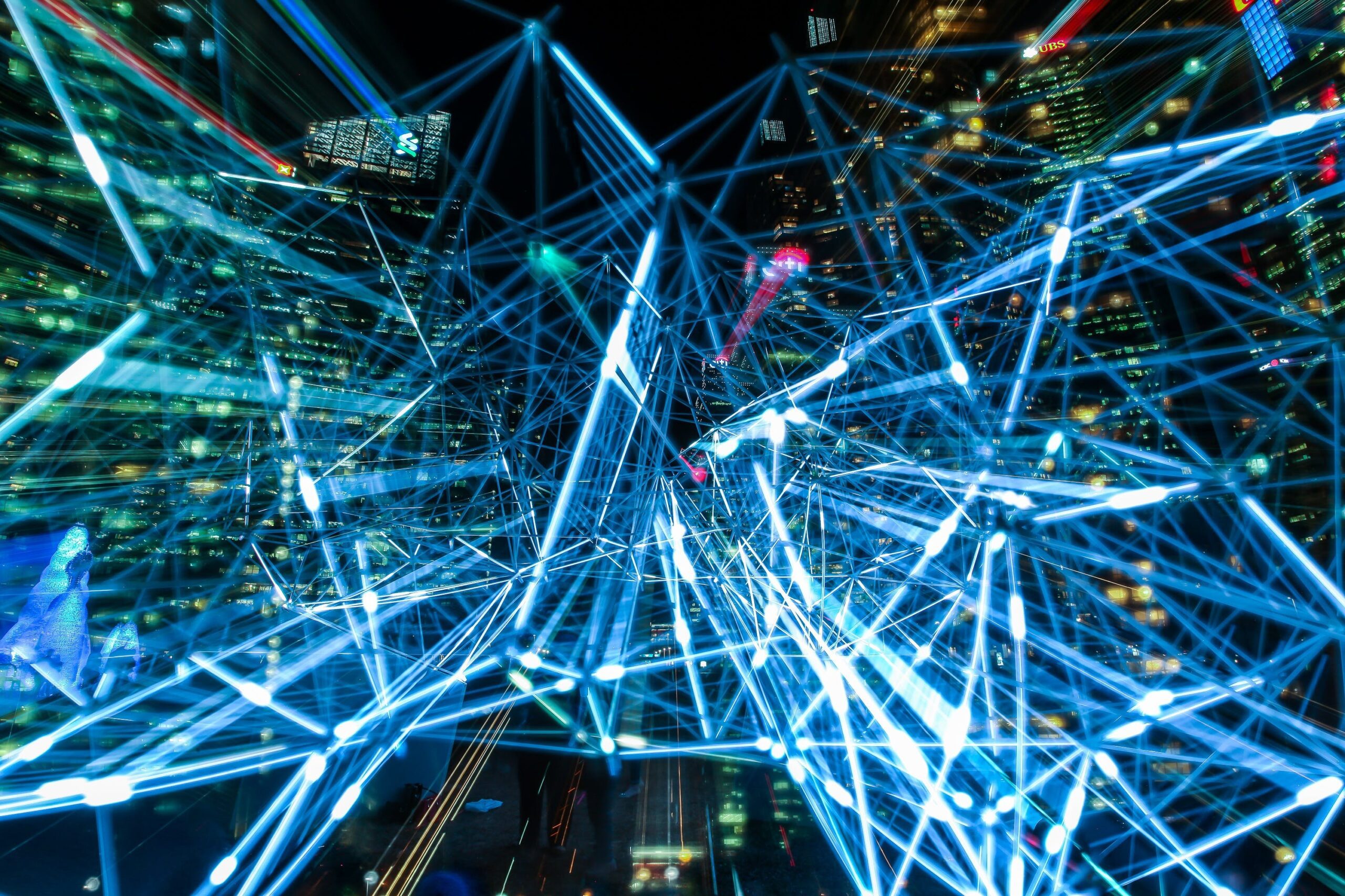Written by RankRevu Blogger
December 20, 2023

Artificial Intelligence (AI) stands as the vanguard of technological progress, a field where human ingenuity intersects with machine capabilities. At its essence, AI refers to the development of computer systems that can perform tasks requiring human intelligence. These tasks encompass a wide range, from visual perception and speech recognition to decision-making and language translation. The journey through the intricacies of AI unveils its foundations, evolution, practical applications, and the profound impact it holds for the future.
Foundations of AI: Understanding the Essence
At the core of AI lies the aspiration to create machines capable of intelligent behavior. This encompasses learning, reasoning, problem-solving, perception, and language understanding. AI systems are designed to emulate cognitive functions that are typically associated with human intelligence. Understanding the foundations involves exploring various types of AI, with narrow or specialized AI focusing on specific tasks and general AI aspiring to possess human-like cognitive abilities across a broad spectrum.
Evolution of AI: A Historical Perspective
The history of AI is a timeline marked by breakthroughs, setbacks, and paradigm shifts. Beginning in the mid-20th century with the advent of electronic computers, early AI pioneers aimed to replicate human intelligence through symbolic reasoning. As computational power increased, AI evolved through different phases, including rule-based systems, expert systems, and neural networks. The contemporary era witnesses the dominance of machine learning and deep learning, where AI systems learn from vast datasets to improve their performance.
Practical Applications of AI: Beyond the Theoretical Realm
AI is not confined to theoretical discussions; its practical applications are woven into the fabric of our daily lives. From voice assistants like Siri and Alexa to recommendation algorithms on streaming platforms, AI systems seamlessly integrate into various industries. In healthcare, AI aids in diagnostics and personalized treatment plans. In finance, it optimizes trading strategies. AI-driven autonomous vehicles promise to revolutionize transportation. These applications showcase the versatility and real-world impact of AI technologies.
Business Transformation: The Impact of AI on Industries
The infusion of AI into business models has led to a transformative impact across industries. Automation streamlines processes, predictive analytics enhances decision-making, and AI-driven insights open new avenues for innovation. The business landscape is undergoing a paradigm shift, with AI becoming a catalyst for efficiency, competitiveness, and the creation of entirely new markets and services.
Ethical Considerations: Navigating the Challenges of AI
As AI becomes omnipresent, ethical considerations come to the forefront. Issues such as algorithmic bias, data privacy, transparency, and accountability pose challenges that demand thoughtful navigation. The responsible development and deployment of AI technologies are imperative to ensure their positive societal impact, and ongoing discussions revolve around establishing ethical frameworks and guidelines.
AI and Creativity: A Collaborative Symphony
Contrary to fears of AI replacing human creativity, a collaborative synergy emerges between AI and artistic endeavors. From generating music compositions to creating visual art, AI contributes to the creative process, pushing the boundaries of what is possible. This collaborative approach envisions a future where AI amplifies human creativity rather than supplants it.
The Future of Work: Augmented Intelligence in the Workplace
The workplace is undergoing a metamorphosis as AI technologies augment human capabilities. Repetitive tasks are automated, freeing up time for more complex and creative endeavors. The narrative shifts from job displacement to a future where humans and AI collaborate, each leveraging their unique strengths for a more productive and innovative workforce.
Revolutionizing Healthcare: AI’s Impact on Patient Care
In healthcare, AI serves as a powerful ally. Diagnostic accuracy is enhanced through AI-powered imaging analysis, and personalized treatment plans are devised based on individual patient data. The marriage of technology and healthcare promises to revolutionize patient care, making it more precise, accessible, and tailored to individual needs.
Global Perspectives: Navigating the Worldwide Landscape of AI
The adoption and adaptation of AI vary across countries and cultures. Regulatory frameworks, cultural attitudes, and economic considerations shape how nations integrate AI into their societies. Understanding the global landscape provides insights into the challenges and opportunities that arise on a worldwide scale.

Conclusion: Navigating the Uncharted Territories of AI
As we conclude this exploration, we find ourselves at the crossroads of innovation and societal transformation. AI, in its evolution from theoretical concept to practical application, embodies the potential to reshape industries, redefine work, and enhance our daily lives. Navigating the uncharted territories of AI requires not just technological expertise but a commitment to ethical considerations, responsible development, and a collective vision for a future where AI serves as a tool for the betterment of humanity. The journey through AI is ongoing, a continuous exploration of possibilities that holds the promise of illuminating the path toward a technologically advanced and ethically sound future.
Related Articles
No Results Found
The page you requested could not be found. Try refining your search, or use the navigation above to locate the post.

